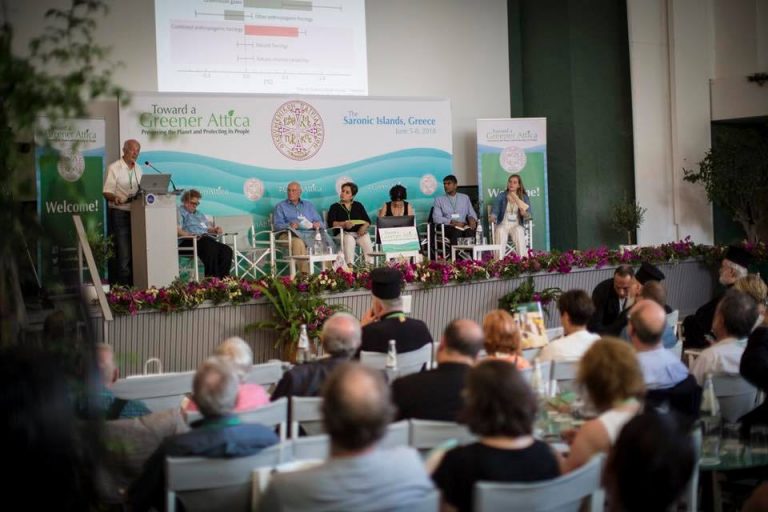
The Ecumenical Patriarchate organised an international ecological symposium in Athens and the Saronic Islands on 5-8 June 2018, entitled “Toward a Greener Attica: Preserving the Planet and Protecting its People”. The symposium brought together 200 theologians and scientists, political and business leaders, professors and students, as well as activists and journalists from Asia, America, Africa, Europe, and Greece, and explored the pressing environmental problems of the region and examine the connections between ecology and economy, particularly in the context of pressing social and environmental challenges in Greece and globally.
In an article that appeared in the Greek press, His All-Holiness the Ecumenical Patriarch Bartholomew highlighted the spiritual roots of the ecological crisis, while emphasizing the solidarity between humanity and nature. He added: “The truth is that there are severe repercussions for the way we treat God’s creation. What we believe about our world will define how we behave toward it.”
Ecumenical Patriarch Bartholomew officially opened the international ecological symposium at the Acropolis Museum in Athens. In his keynote address, the Green Patriarch observed how “The ecological crisis has revealed that our world constitutes a seamless whole, that our problems are universally shared.” He highlighted the ecological problems of the surrounding region of Attica and Greece: “Much remains to be done in order to reduce the unacceptable trash in the surrounding mountainside of Attica with its deplorable landfills and to resolve the unjustifiable plastic on the floor of the surrounding sea that threatens marine life.”
The third day of the 9th Ecological Symposium of the Ecumenical Patriarchate featured two sessions focusing on the relationship between economy and ecology, but also the environmental crisis and forced migration. The first session held on the island of Spetses included renowned economist Jeffrey Sachs (Earth Institute), author and activist Maude Barlow (Council of Canadians), and Orthodox theologian Metropolitan John of Pergamon, who observed that responding to the ecological crisis and respecting God’s creation would not be the result of reducing selfish consumption, but rather the result of recognizing the world as a gift. The second session held on the island of Spetses was addressed by scientist and activist Vandana Shiva, as well as a refugee from Iran, who is now a shelter coordinator assisting unaccompanied refugee children. Between the two sessions, the Ecumenical Patriarch released two kestrels, which had been injured and restored to health.